| Article ID | Journal | Published Year | Pages | File Type |
|---|---|---|---|---|
| 2012453 | Pharmacological Reports | 2011 | 5 Pages |
Abstract
The interest in digoxin has recently increased due to the expanding knowledge regarding endogenous cardiac glycosides and a potential oncological application of this drug. Hydrogen sulfide (H2S), a crucial co-modulator of various physiological processes, is involved in the pathophysiology of different disorders and may be useful in the treatment of some diseases. The interaction between cardiac glycosides and H2S is unknown. The aim of the study is to assess the influence of digoxin on H2S tissue concentrations in mouse brain, heart and kidney. Thirty male BALB/c mice were given intraperitoneal injections of digoxin at 0.5 mg/kg body weight (b.w.) per day (group D1, n = 10) or 1 mg/kg b.w. per day (group D2, n = 10). The control group (n = 10) received physiological saline. Free H2S tissue concentrations were measured via the Siegel spectrophotometric modified method. There was a significant, progressive increase in the H2S concentrations for both the low and high digoxin doses in the brain (7.7% and 8.5%, respectively), heart (by 6.0% and 22.1%, respectively) and kidney (by 7.6% and 13.0%, respectively). This report shows that digoxin administration is followed by an increase in the free H2S concentrations in mouse brain, heart and kidney tissues.
Related Topics
Life Sciences
Biochemistry, Genetics and Molecular Biology
Biochemistry
Authors
Bogdan WiliÅski, Jerzy WiliÅski, Eugeniusz Somogyi, Joanna Piotrowska, Marta Góóralska,
